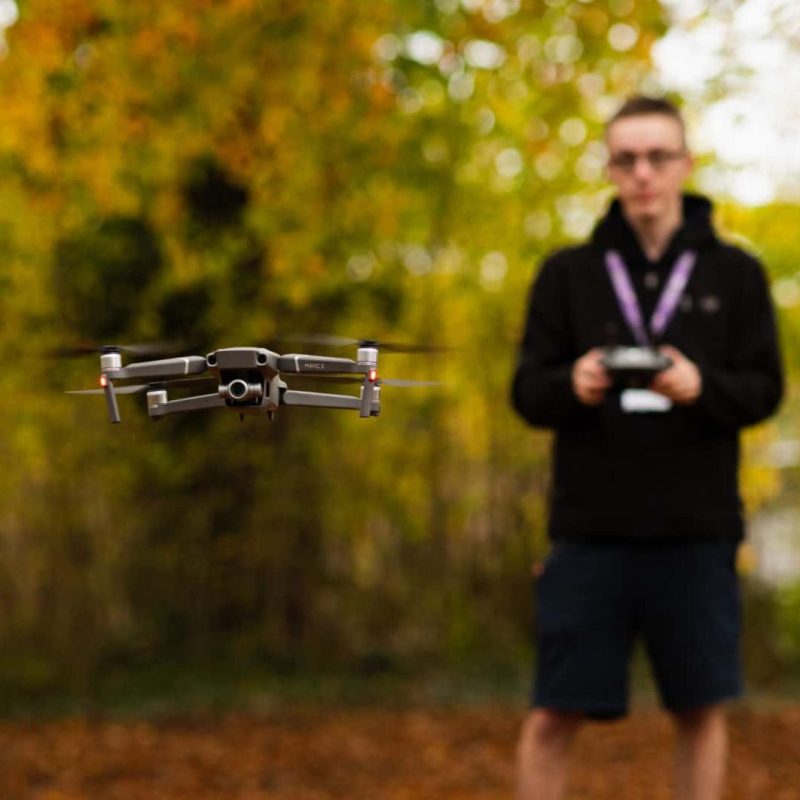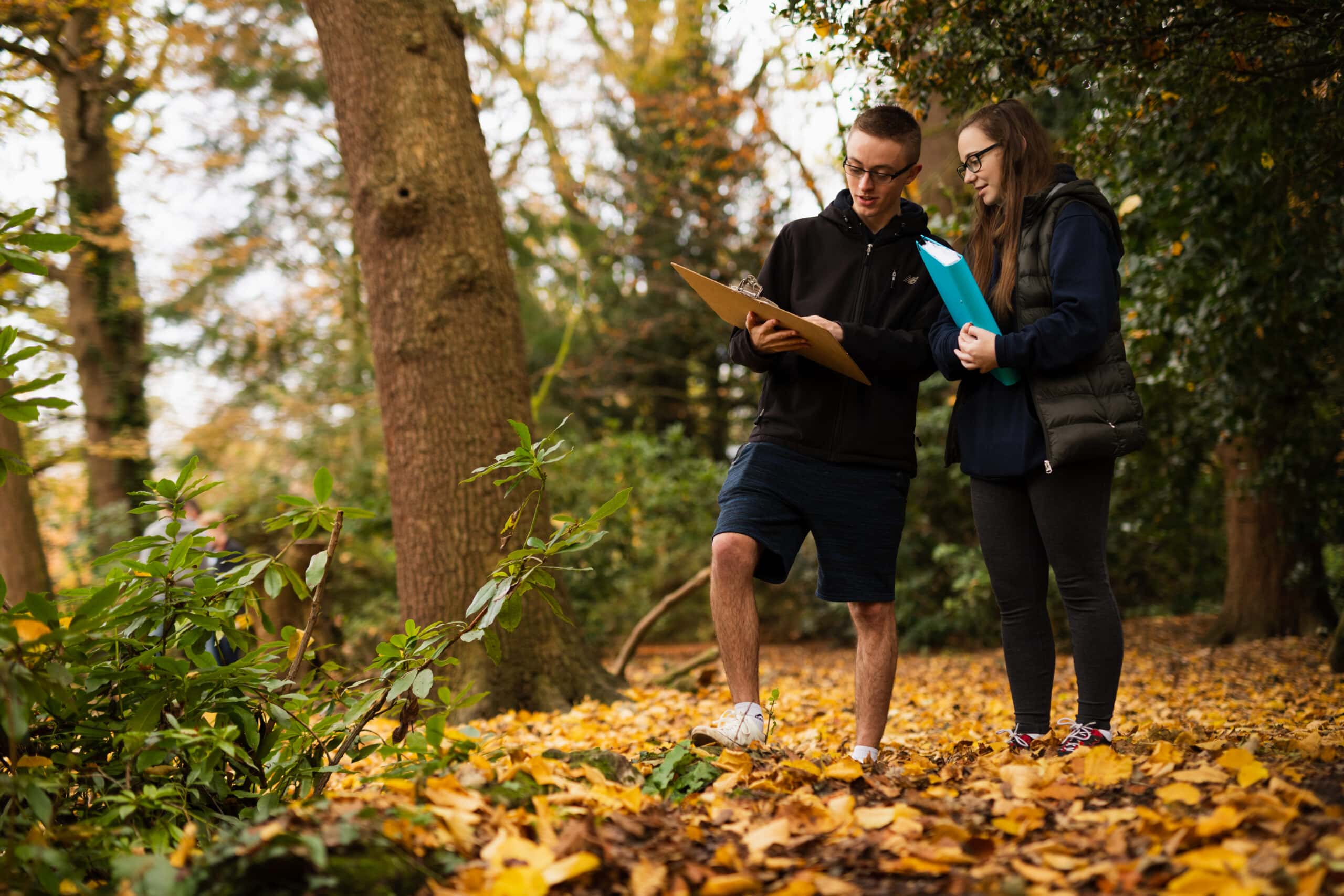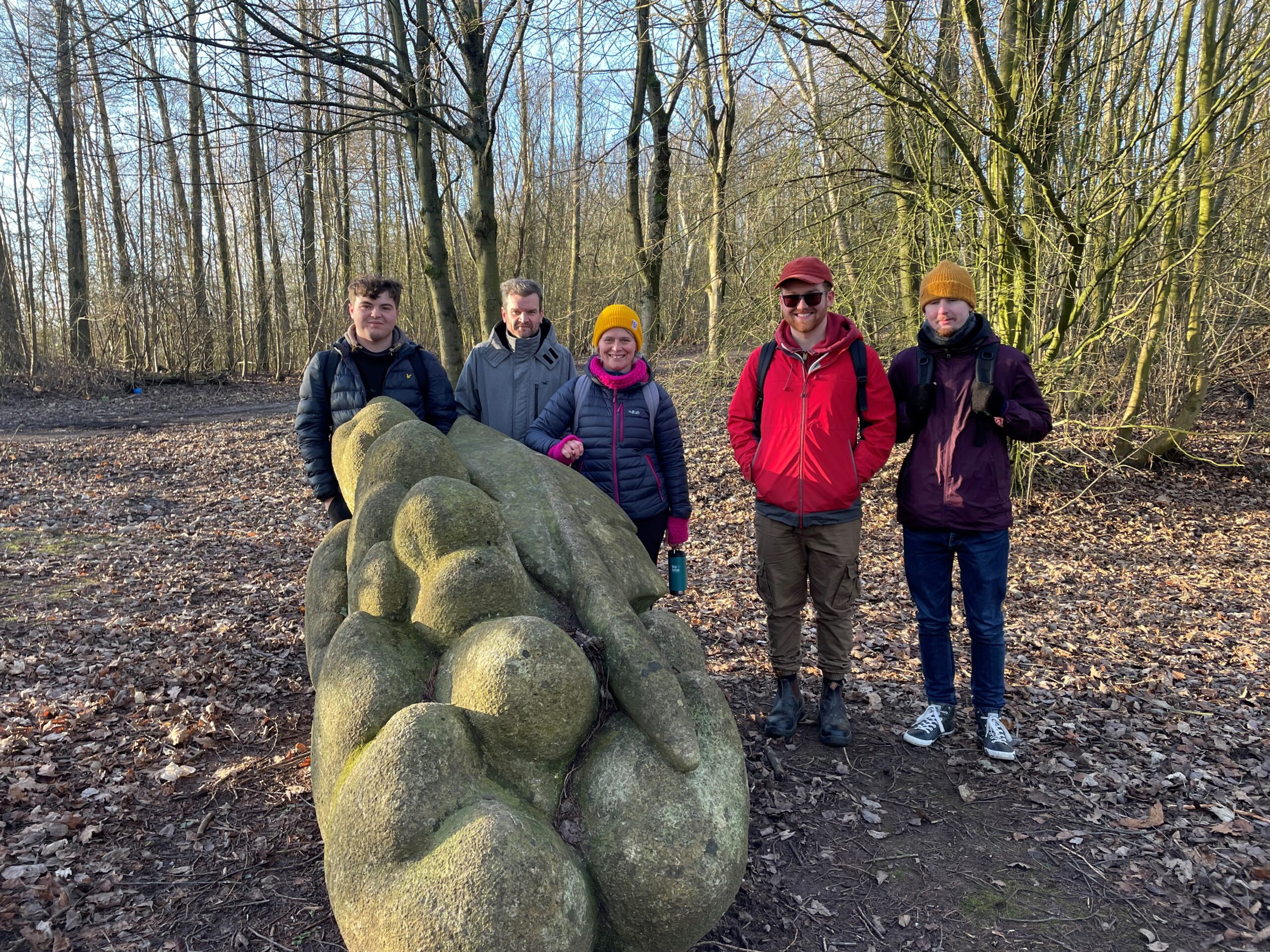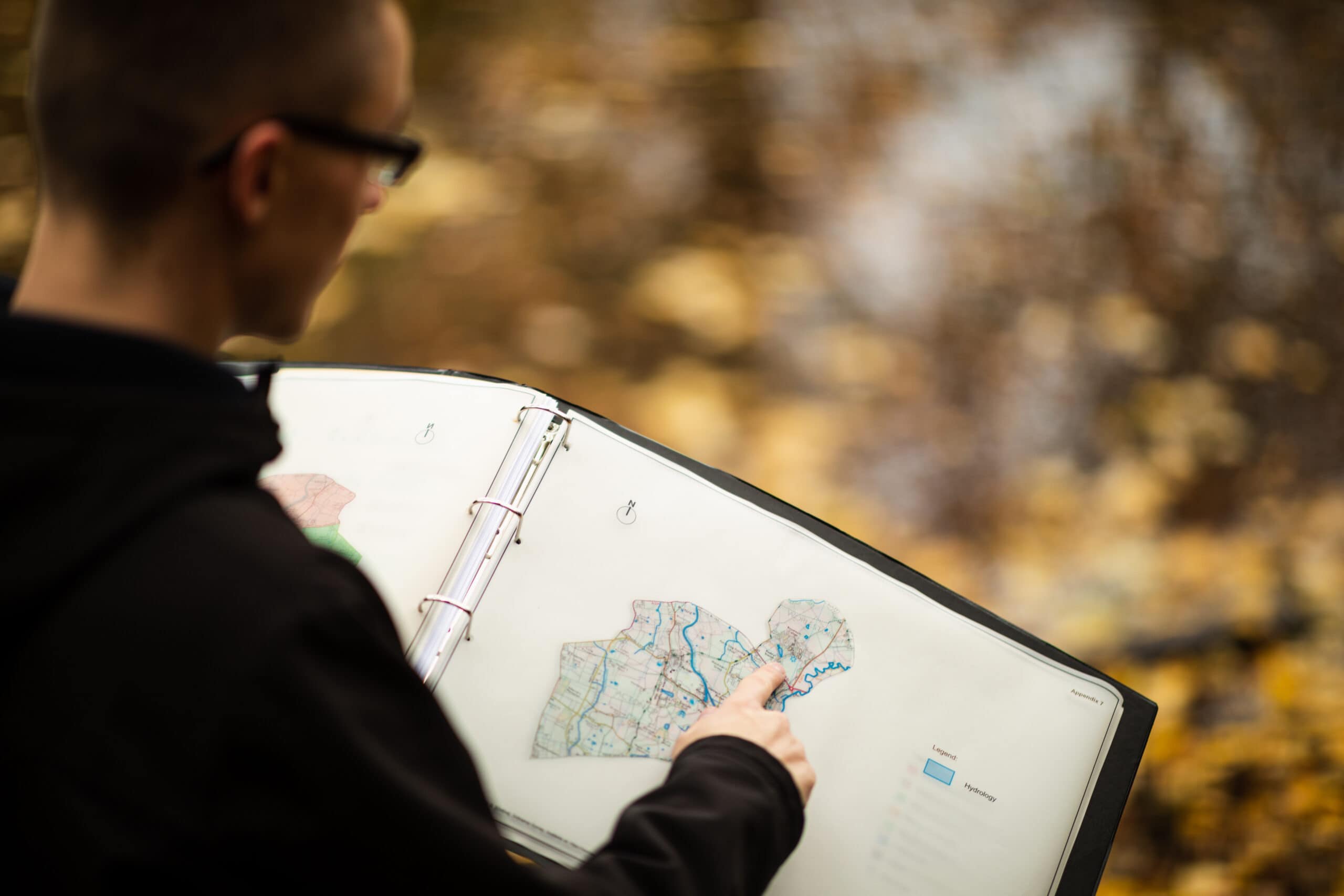Do you have the passion and vision to manage sustainable open spaces and green infrastructure?
On our BSc (Hons) landscape architecture with placement year degree, you’ll gain the insights and experience to help ensure land, property and estates are managed and cared for as an integral part of our shared, sustainable future.


Study is based in our £9 million National Centre for Horticulture, the Environment and Sustainable Technology and you will learn first-hand from a team of deeply committed experts in their fields; an inspirational and award-winning team who will help you to flourish and support you to confidently pursue your purpose in a career intimately connected to the landscape.
Our curriculum is innovative and inspiring, built around the core principles of sustainability, function and conservation. Together with our emphasis on practical skills and all-round business awareness, you’ll be well-prepared for the challenges you’ll face in a career in the landscape management sector.


After completing this Landscape Architecture degree with placement year, just some of the career options that would be available to you include:
Find out more about the BSc (Hons) Landscape Architecture with placement year, including entry requirements, modules, assessment methods and more using the drop down menu below.
A minimum of 96 UCAS points from one of, or a combination of, the qualifications below, ideally in a science-based or relevant subject:
Non-standard entry: applicants aged 21 years of age or over without standard academic qualifications may be able to demonstrate considerable vocational experience and transferable skills. Their applications will be viewed on an individual basis to assess suitability. Any applicant who has not received certification for prior learning experiences, but has worked within the discipline, will also be considered. In some instances, applicants may be asked to attend an interview or complete a written assessment to support their application.
Contextualised Admissions: to support access and participation in Higher Education, University Centre Reaseheath operates a contextualised admissions policy, which allows reduced offers to be made to students with certain characteristics and/or social background. Further information can be found in the UCR Contextualised Admissions Policy, available on the website.
International Students: This course is not accepting applications from students requiring sponsorship for a Student visa. If you do not require sponsorship please contact UCRAdmissions@reaseheath.ac.uk for further information.
(Year 1)
(Year 2)
*Optional
Overall workload
Your overall workload consists of class contact hours, independent learning and assessment activity, plus field trips. Your actual contact hours may depend on which optional modules you select, but the following information gives an indication of how much time you will need to allocate to different activities at each year of the course:
Year 1:
30% of your time is spent in timetabled teaching and learning activity
Teaching, Learning and Assessment: 360 hours
Independent Study: 840 hours
Year 2:
22% of your time is spent in timetabled teaching and learning activity
Teaching, Learning and Assessment: 252 hours
Placement: 100 hours
Independent Study: 848 hours
Year 3:
15% of your time is spent in timetabled teaching and learning activity
Teaching, Learning and Assessment: 174 hours
Independent Study: 1026 hours
Class sizes average between 10 – 60 for modules exclusively delivered on the programme. For those modules offered across several programmes, class size could be as high as 80 individual learners.
Assessments are designed to encourage both academic skills and skills valued in the workplace. They include a combination of coursework and timed assessments in both independent and collaborative formats.
Coursework may take many forms including: essays, reports, data processing, presentations, academic posters, seminar discussions, interviews, critical reviews and portfolios of evidence.
Timed assessments will vary depending upon the nature of the module but will be problem-solving tasks dealing with real-life industry issues which support the development of industry and life skills.
The placement will be a minimum of 9 months and will be credit bearing with a portfolio assessment and professional discussion required to evidence your achievement.
Students will be able to access course timetables for the academic year in September.
Timetables are subject to change, but most students can expect to spend four days per week on campus in their first year, three days in their second year and two days in their final year.
Tuition fee
For Placement Year is £1,850 (all other years charged at £9,250).
General
As part of your experience on the programme, you will need to set aside a budget for:
The cost of travel to sites and occasional day trips and off site projects
Study tour, which will normally require around £350-£400 for travel and accommodation, in addition to daily expenses
Printing, binding, modelmaking, drawing equipment, portfolios and associated stationery costs approximate £400-£700
Materials for the final exhibition, which may be up to £250
Costs associated with a placement, travel, accommodation, materials etc.
Membership
Membership of the Landscape Institute – £32 (1st June-31st May) Student membership of the Landscape Institute is really useful to have to be able to access the member networking sections on the Landscape Institute website, discounts for conferences and the quarterly editions of the Landscape Journal. Once you have completed the programme, you could then apply for Licentiate Membership. British Association of Landscape Industries – £15 per annum.
Equipment Costs
PPE Steel toe capped boots, £40 Gloves, £5 Drawing equipment/materials, approx. £100 A laptop/PC/Mac that supports GIS and Vectorworks software. Many students may already have this, if not they will need to purchase a sufficient device. Students will be able to get free software for the duration of their studies. Prices of equipment are subject to change dependent on retailer.
Here you will find useful information about the services and support available at University Centre Reaseheath. Click to expand each item:
University Centre Reaseheath is committed to providing additional financial support to those who need it. To find out about the bursary schemes available visit our additional financial support page.
For students to get the best out of their time at University Centre Reaseheath, we must both recognise that we owe obligations to each other. These obligations are set out in our UCR Student Contract. Before you accept an offer of a place at University Centre Reaseheath, it is important that you read these contract conditions. If you are going to be living in Halls of Residence, you will also need to read the Student Accommodation Licence Conditions. Both of these contracts can be found here.
Click here to view the University Centre Reaseheath Student Protection Plan.
All UCR students are given the opportunity to apply for residential accommodation. First year students are guaranteed accommodation and this offer is made to all applicants who live more than a reasonable daily travelling distance from Reaseheath (providing you have applied before the UCAS equal considerations deadline. For full details on our halls of residence visit our accommodation page.
We have a team of dedicated professionals on hand to offer you support. These include our Student Services Team, Inclusive Learning Team, Library and Learning Resources Team and the Reaseheath Careers Service. You can find more information on the support provided at Reaseheath on our support page.
University Centre Reaseheath is proud to welcome international students. For more information, please visit our international students page.